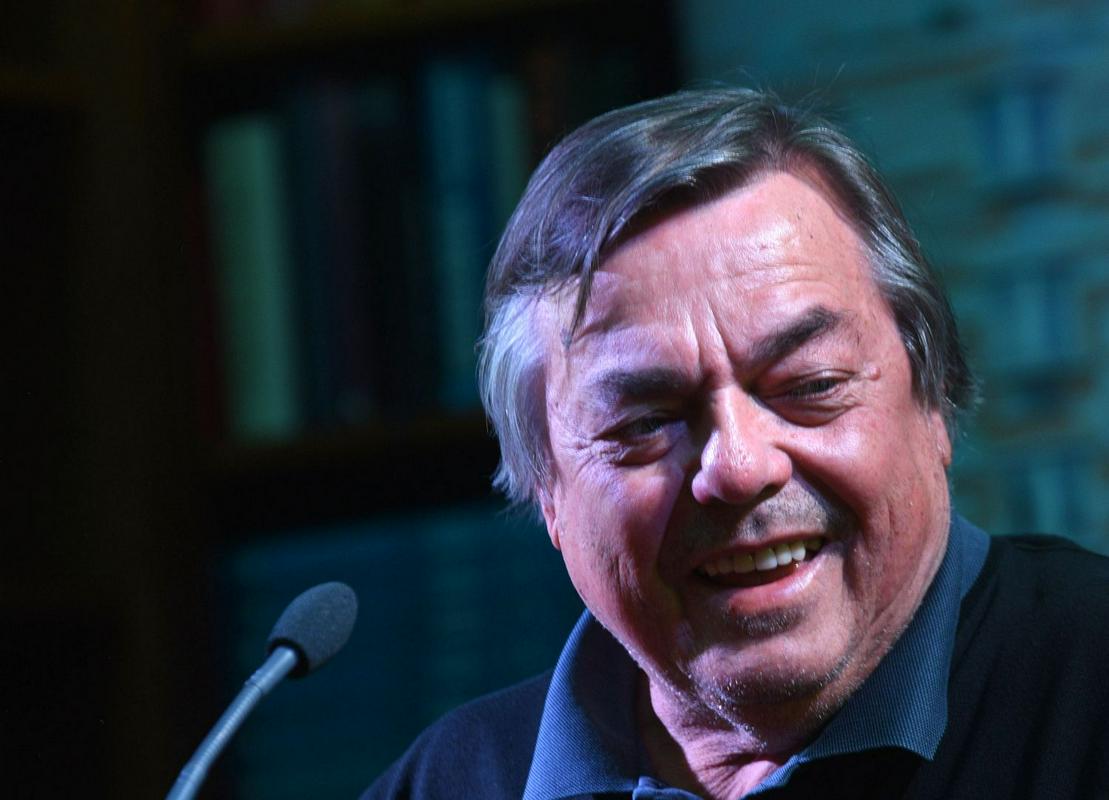Last week the Beletrina publishing house issued Drago Jančar’s latest novel. In ljubezen tudi (And love also) is not a romance novel but a novel "about love" (as book critic Ženja Leiler put it). The storyline takes us to Maribor and its vicinity during the Second World War and immediately after it. The era that defined decades of life in the capital of Štajerska, perhaps even up until today. The writer, who was still just a child in the 1950s, listened to dark stories of the war with a heavy heart. "We listened to stories about what it was like during the occupation of Maribor, about the terror and brutality, battles at Pohorje, the stories of people who returned from concentration camps … This all seared deep into my young soul. And we also lived in violent times: in a way the people were still behaving aggressively since the war, which is why I’ve seen with my own eyes many such things in my surroundings, in Maribor’s working class suburb of Studenci."
Love triangle with historical backdrop
In this chaos, the reader gets to know the characters whose paths would fatally cross. The first is an SS soldier by the name of Ludwig Mischkolnig, who was born in Maribor to German parents. To re-affirm his strong sense of German nationality, he joins the Nazis in 1930s for training. However, he loves the occupied Maribor, where he returns as an official during the war, just as much as Slovenians: to him Maribor is a city that holds his earliest childhood memories. Naturally, he imagines Maribor’s future to be completely German-ruled by a single party, regardless of how bloody the fight against Slavic "bandits" is. It is Ludwig, formerly known as Ludek, to whom an acquaintance from his younger years comes. Sonja is trying to save his boyfriend Valentin from a Gestapo prison. The Germans (rightfully) accuse him of cooperation with the Partisans but fail to prove it, which is why Valentin is stuck in prison and is subject to all sorts of interrogation techniques.
"Europe’s soul is confused"
As a regular guest of literary festivals abroad, Jančar is renowned since the 1980s as an intellectual figure not only in Slovenia but in the wider European space. During the presentation of his newest book, the author also touched upon "the condition of the European spirit" as he perceives it. "Europe’s soul is pretty confused, lost. Even by speaking about the Second World War, we’re sensing anxiety – as it something like that is approaching. Just look at how quickly we’ve got used to living with terrorist attacks: we forget about them in a few days. It’s completely abnormal that this has become normal. It seems that we’re abandoning the values of French Enlightenment: we’ve put the question of human rights at such a level that we’re no longer capable of certain distinctions."
Ana Jurc, MMC; translated by K. Z.


































































